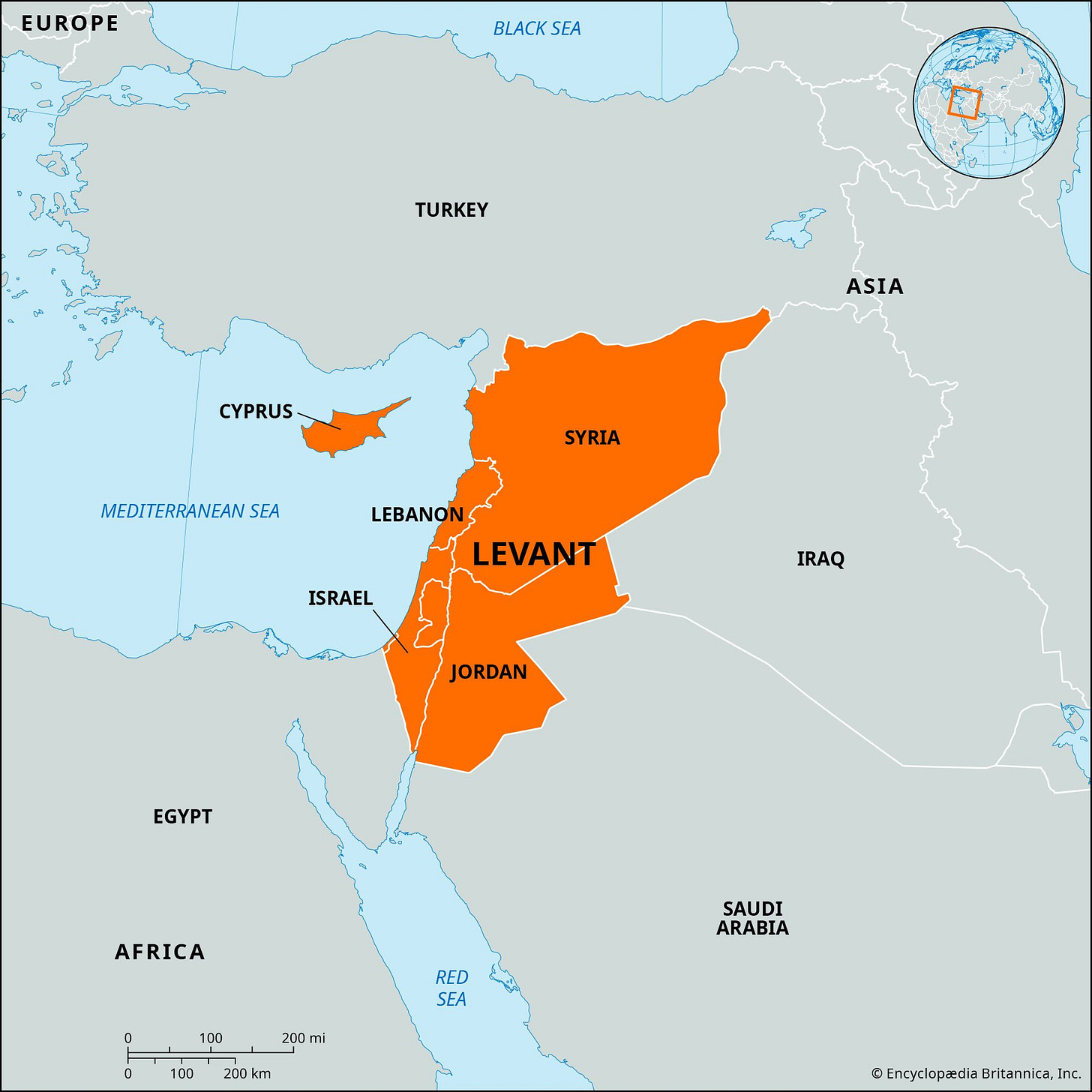“Blaming people for being “sectarian”—instead of making the best of such a natural tendency—is one of the stupidities of interventionistas” (Taleb, 59)
I’ve noticed a big push in people judging the world for how they think it should be instead of how it is. Taleb brings up a great example here, discussing “Western Arabists” who are so “enamored” with the subject that they’ve disconnected the Levant (see image below for reference) entirely from its Mediterranean roots and have effectively killed most local cultures, languages and even people.
They have no skin in the game, so they can make decisions in a fictional world where Arab leaders didn’t violently take over most of the region, enslaving and/or destroying most local populations. But they have no skin in the game, so they continue the same practices to this day. They continue this illusion that ‘if X is appeased, then the region will all hold hands and live in kumbaya’.
When a decision-maker has no skin in the game, they can live in worlds of should instead of is.
We see this also in the world of privileged thinking that dominates the cultural conversations in the Western world. We see people in gated communities shouting defund the police. People in gated communities shouting to take people’s guns away. The loudest voices are the ones who have the least skin in the game.
Of course people shouldn’t shoot people. Of course cops shouldn’t be needed. But in many places they are. That brings us to our next topic, there is something between myself and the entirety of humanity.
“I am, at the Fed level, libertarian;
at the state level, Republican;
at the local level, Democrat;
and at the family and friends level, a socialist” (Geoff and Vince Graham)
When we talk about ethics, a lot of the conversation is between the individual and humanity at large. But what about my family? What about my town? What about my state? My country?
As we said at the beginning, we are naturally “sectarian”, meaning we treat groups of people differently. Some are more “us” than others. For many people, family and friends are so “us” that they’re really a part of “me”.
That’s why the label “right-wing” and “left-wing” are nothing more than psychological tricks. No person wants their family to operate the same way as their federal government. Your politics depend on scale.
How does that relate to ethics?
“It is unfortunate, but the general kills the particular.” (Taleb, 59)
It is impossible to be both ethical and universalist. In theory, yes. In practice, who wouldn’t trade the life of a stranger in a remote village across the globe’s life to save their mother’s life? How likely are you to donate to a stranger with cancer’s GoFundMe? What is it’s your neighbor?
We need to stop pretending we live in a world of “should” and address how the world “is”. There’s so much pressure to sound ethical when we have no skin in the game, that we easily fall into the trap of not seeing the world how it actually is.
Question of The Day
What is an ethic you hold to be universally true?
Your Friend,
Noah “BigNerd” Sochaczevski


